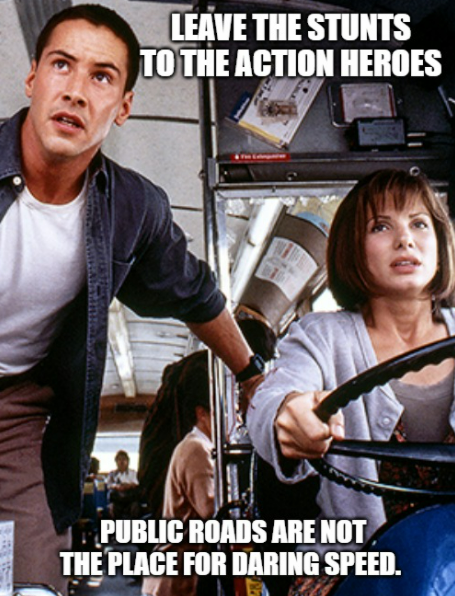SASKATCHEWAN — In 1994, a dangerous criminal put a bomb on a city bus and a heroic cop had to keep that bus travelling at 80 km/h to keep it from detonating.
OK, so that’s actually the plot of the Keanu Reeves movie “Speed” and that’s one instance where it’s understandable that someone would drive well over the speed limit.
But we’re not living in an action movie or even a simulated reality. In real life, driving like you’re John Wick won’t lead to an excellent adventure, and will put more than stunt doubles at risk. Here’s our point: break the habit of treating speed limits like they’re suggestions.
March’s Traffic Safety Spotlight puts the focus on speed. That means police across the province will be on the lookout for those with a heavy foot this month.
“Excessive speed is one of the major causes of traffic-related deaths and injuries in Saskatchewan,” Penny McCune, Chief Operating Officer of the SGI Auto Fund said. “The faster you go, the more serious the consequences when you are involved in a collision. Why risk serious or fatal injuries? When you speed, you endanger yourself, other road users, and those most vulnerable – like pedestrians.”
Even if you don’t cause a collision, a speeding ticket can turn a pleasant drive to the lake house into a bogus journey. If you’re clocked at 20 km/h over the limit you can expect a ticket for at least $190. Fines escalate based on how fast the vehicle was speeding and whether the offence took place in a work zone or school zone.
In case you’re in a rush, here’s a breakdown of the more serious speeding offences under the Traffic Safety Act, all of which result in more expensive tickets and additional demerit points:
- exceeding the limit by more than 35 km/h;
- exceeding the limit by more than 50 km/h;
- exceeding the limit in a school zone;
- exceeding 60 km/h while passing highway workers; and
- exceeding 60 km/h when passing an emergency vehicle or tow truck at roadside with lights flashing.
Along with obeying speed limits, always be sure to buckle up, drive sober and keep your attention on the road.



